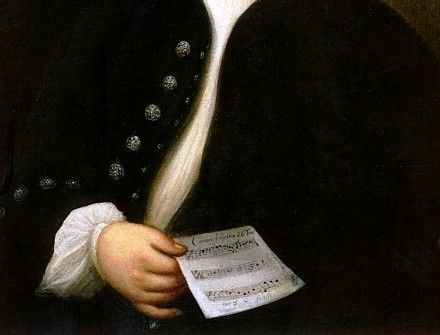My favourites - Classical music

I started playing the cello when I was 7 years old simply because of this piece by Saint-Saens : The Swan (Le Cygne) from The Carnival of the Animals. I was studying music theory and at the end of the school year our teacher invited some musicians into the class to demo different instruments. A cellist played this piece and that was it, the cello was for me and the lifelong love of this instrument began.
When I was a child I was part of the children's chorus in Act 2 of Puccini's opera La Bohème, presented by the Dublin Grand Opera Society (DGOS) in Cork Opera House.
It was exciting to involved. The setting for Act 2 is the Latin Quarter in Paris, Christmas Eve, 1837. The main cast arrive to dine there. Being on that stage was to be transported back in time. The DGOS had gone all out with props. There were stocked market stalls with antiques and food, cafe's, lanterns and wonderful period costumes.
For weeks us children had rehearsed our singing parts and choreography separately and it really wasn't until the final dress rehearsals that we were joined by the adult singers and the leading stars.
Act 2 begins and it was noisy and chaotic. Stall vendors proclaiming their seasonal wares, café patrons chatting and great excitement for the children when a toy peddler Parpignol arrives. There are dramatic exchanges between the main characters but all goes silent when Musetta (sung by Virginia Kerr) began this aria "Quando me'n vo" (Musetta's waltz). As she sang I felt the vibrations of the orchestra and her voice come through the stage floorboards up through my whole being. It was the most powerful and perfect melody I had ever heard and I still love it as much today.
This is a beautiful rendition of this aria. I also want to get my hands on a truly exquisite version that soprano Anna Devin performed in March this year in the Irish National Opera presentation of La Bohème, which was livestreamed from the Bord Gáis Energy Theatre in Dublin due to Covid-19 restrictions.
Air on the G string, Johann Sebastian Bach
Bach's Air on G string will be familiar to anyone who studied music in secondary school in Ireland. It is the perfect blend of chunky delicious harmony bites from the Baroque era.
Time was, we cellists had images of Jacqueline du Pré and Paul Tortelier in our heads. Inspiring technically with their brilliance but they did nothing to boost the street cred of the "big violins" over on the right side of the orchestra.
Then along comes Hauser and gets the G strings in a bit of a twist. Sigh!! It's all a bit distracting trying to keep an eye on the finger positions and learning anything ... might be better to pull out some more du Pré videos.
Il Canto, sung by Luciano Pavarotti
I grew up listening to Pavarotti's voice and he is still my favourite tenor. Long before he joined popular culture as part of The Three Tenors, my dad was playing his music at home.
The Moldau by Smetana
The first music I knew, was mostly the music my Dad listened to. Classical music and opera. The sitting room would be filled with a cloud of delicious smelling pipe smoke, my dad oblivious in a book and his portable record player on the floor. I could feel the orchestra's crescendos swell beneath me almost from the bowels of the earth while lying on the floor building lego or reading Bunty. He died just as CDs were becoming available but no matter how good a recording on a CD was, for me the sound of classical music on vinyl is still far superior, more emotional and real.
The Moldau brings back so many memories for me. It depicts the journey of the Moldau "Vltava" river:
"Two springs pour forth in the shade of the Bohemian forest, one warm and gushing, the other cold and peaceful. ... The forest brook, hastening on, becomes the river Vltava. Through thick woods it flows, as the gay sounds of the hunt and notes of the hunter's horn are heard ever nearer. It flows through grass-grown pastures and lowlands where a wedding feast is being celebrated. ... At night wood and water nymphs revel in its sparkling waves. ... At the St. John's Rapids the stream races ahead, winding through the cataracts ... finally, flowing on in majestic peace towards Prague. ... Then it vanishes far beyond the poet's gaze."